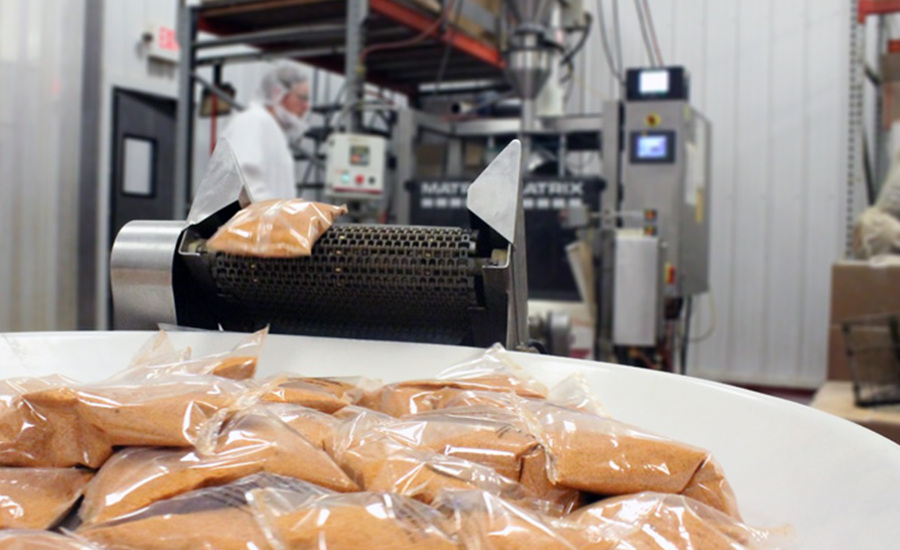In today's conscientious customer landscape, the need for fairly sourced and also lasting products has risen. Private label food manufacturers have become trailblazers in this domain, commonly collaborating with agreement food makers to spearhead sustainability as well as responsible sourcing efforts. With an undaunted dedication to environmental values, exclusive label brands have actually made it their goal to provide lasting, high-grade choices to consumers.
Private Label Food Manufacturers
In the last few years, private label food manufacturers, also referred to as very own brand names or store brand names, have actually observed a remarkable surge in popularity. These producers generate products offered under the logo design of a store, grocer, or personal entity. What sets private-label items apart is their ability to use competitive prices without compromising on high quality.
Contract Food Manufacturers
Many private-label food makers join forces with contract manufacturers to establish their line of product. Contract food makers are experts in producing foodstuff for private labels. This critical partnership permits exclusive label firms to use the competence, resources, and devoted food production facilities of their partners.
Sustainability at the Core
Private label food manufacturers utilize various approaches to enhance sustainability within their supply networks:
Moral Sourcing:
Private label companies are progressively committed to sourcing components according to honest and also reasonable profession requirements. This entails guaranteeing that producers and also employees of basic materials, such as coffee beans, flavors, or cocoa, receive fair settlement for their efforts.
Neighborhood Sourcing:
Prioritizing local sourcing of active ingredients is one more hallmark of private-label food manufacturers. This not only lowers the private label snack food manufacturers carbon impact related to transportation however additionally supports regional farmers and also neighborhoods.
Organic Contents:
With the organic food market increasing, exclusive labels are responding by including organic ingredients right into their product. Organic farming techniques focus on dirt health and wellness while eschewing artificial chemicals and fertilizers.
Sustainable Seafood:
Private Label Food Manufacturers are attentive in making sure that the fish and shellfish they make use of is sustainably harvested, sticking to standards set by organizations like the Marine Stewardship Council, which advertises responsible fishing.
Lowered Food Waste:
Personal label firms are proactively dealing with decreasing food waste by executing effective manufacturing processes as well as creating items with longer shelf lives. Some brands are also partnering with food rescue organizations to donate surplus food to those in demand.
Eco-Friendly Packaging and Initiatives
Sustainability initiatives by private-label food manufacturers extend past sourcing components to incorporate product packaging and also environmentally friendly initiatives:
Sustainable Packaging:
Personal label brands have accepted green packaging alternatives, consisting of recyclable, biodegradable, or compostable products. Upgrading packaging to reduce excess product and also minimize ecological impact is a top concern.
Waste Decrease:
To decrease waste, private-label food makers optimize item sizes, minimize excess product packaging, as well as check out cutting-edge product packaging remedies. Some brand names also urge customers to take part in recycling programs.
Energy Performance:
Several exclusive label producers are investing in more energy-efficient production plants, decreasing water use, as well as embracing renewable energy sources to even more minimize their ecological impact.
Carbon Neutral Initiatives:
Some exclusive brand food makers are taking ambitious actions to achieve carbon neutrality by countering their greenhouse gas discharges through reforestation projects and renewable resource credit scores.

Difficulties and the Road Ahead
Regardless of the substantial strides made in sustainability and responsible sourcing, private-label food makers deal with obstacles. Balancing sustainability with cost-effectiveness can be a delicate act, sometimes calling for concessions on lasting components or the expedition of environmentally friendly options.
However, the future of private-label food manufacturing holds excellent promise. As customer recognition and also demand for sustainable items remain to increase, private-label brands and also their contract food manufacturing partners are likely to intensify their efforts. Cooperation with vendors as well as investment in lasting technical developments and transparency will be pivotal fit a lasting future for the industry.
Regularly Asked Concerns
Q1: What are private label food manufacturers?
Private label food manufacturers produce products marketed under the logo of a retailer, grocer, or private entity. They offer competitively valued items without compromising on high quality.

Q2: Exactly how do private label food manufacturers advertise sustainability?
Private label food manufacturers advertise sustainability through moral sourcing, neighborhood ingredient procurement, the use of natural ingredients, lasting seafood methods, as well as initiatives to decrease food waste.
Q3: What environment-friendly packaging choices do private label brand names make use of?
Personal label brands embrace environment-friendly product packaging options such as recyclable, biodegradable, or compostable products. They additionally revamp product packaging to reduce excess product as well as lower environmental effect.
Q4: What tests do private label food manufacturers encounter in sustainability efforts?
Stabilizing sustainability with cost-effectiveness is a significant challenge for private label food manufacturers. This might call for concessions on sustainable components or the exploration of green options.
Final thought
Private label food manufacturers are at the leading edge of the sustainability as well as liable sourcing movement within the food market. Their commitment to ethical sourcing, neighborhood procurement, natural ingredients, as well as sustainable methods, along with their devotion to green product packaging as well as waste decrease initiatives, show their decision to fulfill the needs of today's eco-conscious consumers.
Despite the difficulties they face, private label food manufacturers are positioned for a promising future. With consumers significantly focusing on sustainability, the industry is likely to witness even better collaboration with providers, investment in lasting innovations, and a dedication to transparency. As we move forward, private label food manufacturers will remain to play an important role in shaping an extra lasting and ethical food landscape for all.